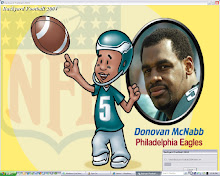Before the unit of Westerns I didn't really know about them. Obviously practically everyone has seen a Western, but I for one didn't really know what they were about. After watching Stagecoach I started to realize what a Western is all about. I thought that Stagecoach was interesting and clearly one of the greatest classics of all time. After that when we watched the revisionist Western Unforgiven, it finally hit me that Westerns weren't simply a cowboys shooting each other. The ingredients for a Western are indeed more complex and interesting than I previously thought. I thought Unforgiven was fabulous and summarized the greatness of Westerns. Lastly I watched The Wild Bunch a Western I watched on my own. After going through this unit I realized that it was one of the better movies made, and has one of the best shootout scenes in the history of action movies.
*********By the way it has a lot of gore*********
Wednesday, October 29, 2008
Wednesday, October 1, 2008
Kane
I thought that "Citizen Kane" was a classic film with many aspects of the language of film that would later be reproduced. One example I thought was the most prevalent was the crane. The opening and closing scenes of the Xanadu estate, and also the scene of Mr. Leland's perspective of Susan singing both displayed the crane. The estate scene's crane effect was very influential to me because it showed how cut off Xanadu is from society from all the fencing that there is. The audience feels lonely just watching it. Also, later in the movie Susan complains how lonely she is and that she wants to go back to New York. The opening and closing scenes' long shots show how immense the estate is, but the crane effect shows how "empty" it actually is. It may be huge, but it is really empty to Susan and deep down it is for Kane too. Then the second influential crane is when Susan is singing. The camera initially focused on Susan while she was singing, but then slowly craned up. It went up past the curtains and scaffolding, to the catwalk where two men made gestures that the song was horrible. All in all I think the crane effect played an important role in the movie and shouldn't be overlooked.
Lastly, I'd like to talk about Rosebud. First of all, in the final scene of the movie the reporter proclaims that no man can be characterized by one word. Clearly this is a much debated topic, and I feel that a lot of people would say that's true. On the other hand I have a counter argument. When Susan leaves Kane, he goes into a fury. He destroys everything in her room leaving nothing untouched. However, Kane does not destroy one thing, the snow globe. He sees the globe and whispers to himself "Rosebud". I think Susan's room is representative of all of Kane's possesions. He doesn't care about anything in his life, just about Rosebud (or the snowglobe that reminds him of it). Although Rosebud doesn't really describe Kane, the significance of it is really all that he cares about. The memory of his old home that the snowglobe and sled reminded him of, was all that he cared about. By destroying all of her room, he says all he cares about is his old rural home. Kane would give it all up for that.
Lastly, I'd like to talk about Rosebud. First of all, in the final scene of the movie the reporter proclaims that no man can be characterized by one word. Clearly this is a much debated topic, and I feel that a lot of people would say that's true. On the other hand I have a counter argument. When Susan leaves Kane, he goes into a fury. He destroys everything in her room leaving nothing untouched. However, Kane does not destroy one thing, the snow globe. He sees the globe and whispers to himself "Rosebud". I think Susan's room is representative of all of Kane's possesions. He doesn't care about anything in his life, just about Rosebud (or the snowglobe that reminds him of it). Although Rosebud doesn't really describe Kane, the significance of it is really all that he cares about. The memory of his old home that the snowglobe and sled reminded him of, was all that he cared about. By destroying all of her room, he says all he cares about is his old rural home. Kane would give it all up for that.
Subscribe to:
Posts (Atom)
